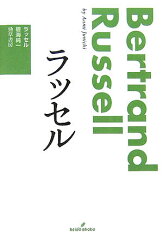* 右イラスト:ラッセルの The Good Citizen's Alphabet, 1953 より
今日では,そこまで(キリスト教徒とは何を意味するかということについての一般的理解)は,いかないのです。キリスト教についてわれわれが意味するところでは,もう少し,漠然としていなければなりません。しかし,自分自身をキリスト教徒と呼ぶ人にとって本質的な2つのちがった事柄があるとわたしは考えます。その第一は教義的な性質を帯びたもの,すなわち,神と不滅とを信じなければならないということです。これらの2つのことを信じないならば,人は,自分をキリスト教徒であるとは正確に言えないのではないでしょうか。しかしそれにもまして,その名が意味しているように,キリストについてのある種の信仰がなければなりません。たとえば,回教徒も神と不滅とを信じていますが,それでも回教徒たちは自分をキリスト教徒とは呼ばないでしょう。最低のところで,キリストは神でなかったとしても,人間のうちで,少なくとも,最善であり,最も賢明な人であった,という信仰は持っていなければならないと思います。キリストについてたいして信仰を持たないというのならば,キリスト教徒であるという権利は1つもないと思います。もちろん,ウイッテカーの年鑑や地理の本にあるような別の意味がありますが,それによれば,世界の人々は,キリスト教徒,回教徒,仏教徒,物神崇拝者等々に別れているといわれています。その意味でならば,われわれイギリス人はみなキリスト教徒です。地理の本はわれわれを皆ひっくるめていますが,それはまったく地理的な意味であって,これは無視してもよいものだと思います。
そこで,わたしが皆さんに,なぜわたしがキリスト教徒ではないかという場合,わたしは2つのちがったことを皆さんにお話しなければならないと思うのです。すなわち,第1に,なぜわたしは神と不滅とを信じないかということであり,第2に,なぜわたしはキリストを人間のうちで,最善の,最も賢明な人であったと考えないかということです。最もキリストに極めて高度の道徳的よさを,わたしとても認めるものではありますが。
過去における不信仰者たちの効果的な努力がなかったならば,そのように弾力性のあるキリスト教の定義をすることは,わたしにはできなかったことでしょう。先にも言いましたように,キリスト教は,昔はもっと生きのよい意味を持っていました。たとえば,それは,地獄についての信仰を含んでいました。永遠の地獄の業火についての信仰は,かなり最近までキリスト教信仰の必要な箇条の1つでした。ごぞんじのように,イギリスにおいては,それは枢密院の決議によって,必要な箇条ではなくなりましたし,その決議には,カンタベリー大主教およびヨーク大主教からの反対がありましたけれども,この国においては,われわれの宗教は法令にもとづいて決定されているので,枢密院は両主教を無視することができたのであって,地獄は,もはや,キリスト教徒には必要でなくなったのです。そういう訳でありますので,わたしは,キリスト教徒は地獄を信じなければならないと主張はいたしません。
|
Nowadays it is not quite that. We have to be a little more vague in our meaning of Christianity. I think, however, that there are two different items which are quite essential to anybody calling himself a Christian. The first is one of a dogmatic nature - namely, that you must believe in God and immortality. If you do not believe in those two things, I do not think that you can properly call yourself a Christian. Then, further than that, as the name implies, you must have some kind of belief about Christ. The Mohammedans, for instance, also believe in God and in immortality, and yet they would not call themselves Christians. I think you must have at the very lowest the belief that Christ was, if not divine, at least the best and wisest of men. If you are not going to believe that much about Christ, I do not think you have any right to call yourself a Christian. Of course there is another sense which you find in Whitaker's Almanack and in geography books, where the population of the world is said to be divided into Christians, Mohammedans, Buddhists, fetish worshippers, and so on; and in that sense we are all Christians. The geography books count us all in, but that is a purely geographical sense, which I suppose we can ignore. Therefore I take it that when I tell you why I am not a Christian I have to tell you two different things; first, why I do not believe in God and in immortality; and, secondly, why I do not think that Christ was the best and wisest of men, although I grant Him a very high degree of moral goodness.
But for the successful efforts of unbelievers in the past; I could not take so elastic a definition of Christianity as that. As I said before, in olden days it had a much more full-blooded sense. For instance, it concluded the belief in hell. Belief in eternal hell fire was an essential item of Christian belief until pretty recent times. In this country, as you know, it ceased to be an essential item because of a decision of the Privy Council, and from that decision the Archbishop of Canterbury and the Archbishop of York dissented; but in this country our religion is settled by Act of Parliament, and therefore the Privy Council was able to override Their Graces and hell further question was no longer necessary to a Christian. Consequently I shall not insist that a Christian must believe in hell.
|


